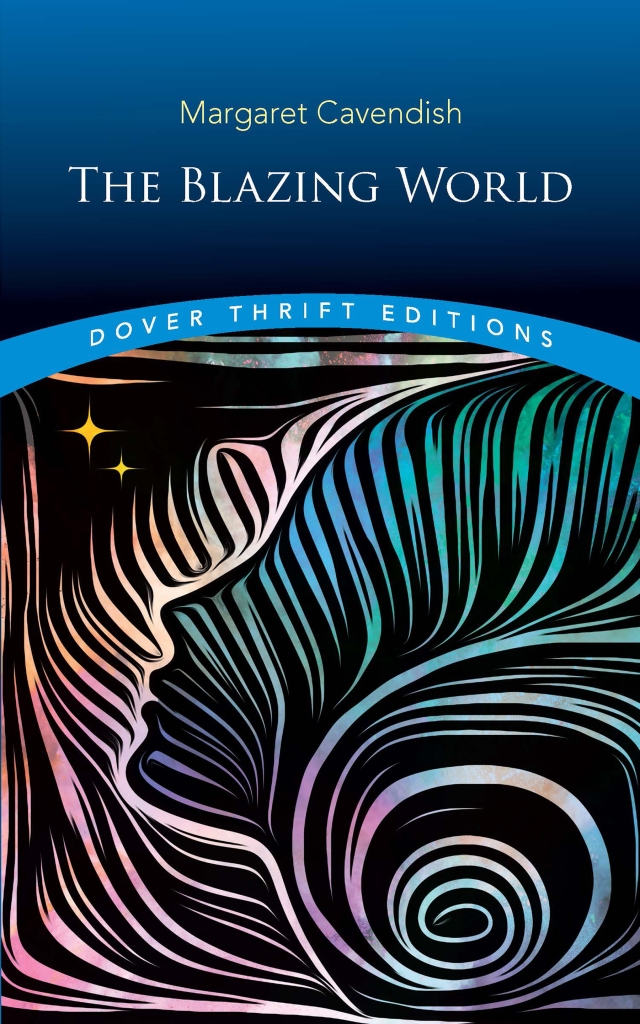
3.5 stars
First Sentence: If you wonder, that I join a work of fancy to my serious philosophical contemplation; think not that it is out of a disparagement to philosophy; or out of an opinion, as if this noble study were but a fiction of the mind; for though philosophers may err in searching and enquiring after the causes of natural effects, and many times embrace falsehoods for truths; yet this doth not prove, that the ground of philosophy is merely fiction, but the error proceeds from the different motions of reason, but the error proceeds from the different motions of reason, which cause different opinions in different parts, and in some are more irregular than in others; for reason being dividable, because material, cannot move in all parts alike; and since there is but one truth in nature, all those that hit not this truth, do err, some more, some less; for though some may come nearer the mark than others, which makes their opinions seem more probable and rational than others; yet as long as they swerve from this only truth, they are in the wrong; nevertheless, all do ground their opinions upon reason; that is, upon rational probabilities, at least, they think they do: But fictions are an issue of man’s fancy, framed in his own mind, according as he pleases, without regard, whether the thing he fancies, be really existent without his mind or not; so that reason searches the depth of nature, and enquires after the true causes of natural effects; but fancy creates of its own accord whatsoever it pleases, and delights in its own work.
Thoughts: Break out the penguins, people!

I think this is the earliest we’ve encountered a contender for the Longest First Sentence of the year. I don’t see an easy way for anyone to beat Cavendish only because the rules of punctuation have changed significantly since the 1660s. Back then people had a severe allergy to periods. Never use a full stop when a semicolon would do, they said and did. It reminds me of the time that my dad was so shocked by a paragraph-long sentence in The Rumpole Omnibus that he made a point to count every word, punctuation mark, and line before the period so he could exclaim about it to everyone in the room.
And now that I’ve discouraged you from reading this book, let me make an attempt to encourage you. The Blazing World is one of the earliest science fiction stories in English, written well before there was even a name for the genre. It begins with a young lady getting kidnapped by a man with dastardly intentions. They sailed into the arctic sea where all the men on the ship died because they deserved it. The Lady survived, however, and crossed over a previously-unknown boundary at the North Pole between her world and the Blazing World
The first indication that the future state of Kansas was far behind her was when she met a group of bear-men. The bear-men took her to a village of fox-men who took her to the geese-men who took her to the satyrs who took her to the green men. The green men took her to the Emperor who fell in love with her. They married and she was given full authority as Empress. Her first act was to commission groups of bear, fox, geese and other birds, fly, ape, lice, and worm-men to study her new home and explain how it all worked.
What follows is a philosophical discussion of the proper ordering of the heavens and the earth. It’s more interesting that it sounds because it shows how people thought the world worked before the big scientific discoveries of the eighteenth and nineteenth centuries. They didn’t even understand how frost formed back then. It’s a fascinating mixture of medieval and Renaissance thinking that aged into the ridiculous.
It all ended with the Empress dissolving the scientific societies, turning instead to the spirits for her philosophical explanations. She did let the bear-men keep their telescope, though.
The spirits proved their worth to the Empress by finding a suitable friend for her in her new home. They brought her the spirit of the Duchess of Newcastle, the author herself. The Duchess and the Empress became best friends and had many adventures together, mainly discussing how their different worlds worked, Cabbalas, and their families. The Duchess took the Empress’ spirit with her to Nottinghamshire where they visited with the Duke and watched him make a speech.
In the second part of the story, the Empress finds out that her home country is at war, so she comes across the polar boundary with her navy and settles everything in her country’s favor. Once her people are in charge of the whole world, she goes home. When the Duchess next comes to see her, they decide to build their own worlds in their own minds that work the way they think they should.
Despite it’s length (86 pages in this edition), this is not a book to dip in and out of. You have to sit down and make a commitment to dedicate a solid amount of time to reading it. This is due mainly to the sentences. The part where the Lady meets the fox, bear, geese, satyrs, and green people is one sentence a page and a half long. Duchess of Newcastle, I salute your dedication to avoiding endings. I wish my dad was still around so he could make a statistical analysis of that sentence.
Once you get past that, it’s a delightful story about making your own world which you can then choose to keep to yourself (as the Empress did) or share with others to enjoy as the Duchess did.